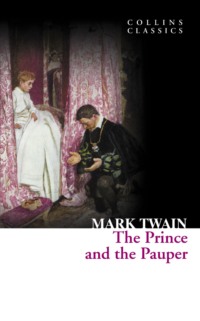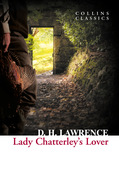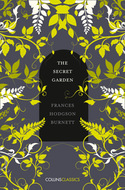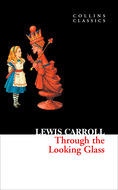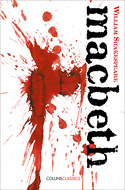Kitap dosya olarak indirilemez ancak uygulamamız üzerinden veya online olarak web sitemizden okunabilir.
Kitabı oku: «The Prince and the Pauper»
THE PRINCE
AND THE PAUPER
Mark Twain

COPYRIGHT
Harper Press
An imprint of HarperCollinsPublishers 1 London Bridge Street London SE1 9GF
This edition published 2011
A catalogue record for this book is available from the
British Library
Life & Times section by Gerard Cheshire
Classic Literature: Words and Phrases adapted from
Collins English Dictionary
All rights reserved under International and Pan-American Copyright Conventions. By payment of the required fees, you have been granted the nonexclusive, nontransferable right to access and read the text of this e-book on-screen. No part of this text may be reproduced, transmitted, downloaded, decompiled, reverse engineered, or stored in or introduced into any information storage and retrieval system, in any form or by any means, whether electronic or mechanical, now known or hereinafter invented, without the express written permission of HarperCollins.
HarperCollinsPublishers has made every reasonable effort to ensure that any picture content and written content in this ebook has been included or removed in accordance with the contractual and technological constraints in operation at the time of publication.
Source ISBN: 9780008156152
Ebook edition © MAY 2012 ISBN 9780007477470
Version: 2020-11-18
CONTENTS
Cover
Title Page
Copyright
Chapter 1 The Birth of the Prince and the Pauper
Chapter 2 Tom’s Early Life
Chapter 3 Tom’s Meeting with the Prince
Chapter 4 The Prince’s Troubles Begin
Chapter 5 Tom as a Patrician
Chapter 6 Tom Receives Instructions
Chapter 7 Tom’s First Royal Dinner
Chapter 8 The Question of the Seal
Chapter 9 The River Pageant
Chapter 10 The Prince in the Toils
Chapter 11 At Guildhall
Chapter 12 The Prince and His Deliverer
Chapter 13 The Disappearance of the Prince
Chapter 14 “Le Roi Est Mort—Vive Le Roi”
Chapter 15 Tom as King
Chapter 16 The State Dinner
Chapter 17 Foo-foo the First
Chapter 18 The Prince with the Tramps
Chapter 19 The Prince with the Peasants
Chapter 20 The Prince and the Hermit
Chapter 21 Hendon to the Rescue
Chapter 22 A Victim of Treachery
Chapter 23 The Prince a Prisoner
Chapter 24 The Escape
Chapter 25 Hendon Hall
Chapter 26 Disowned
Chapter 27 In Prison
Chapter 28 The Sacrifice
Chapter 29 To London
Chapter 30 Tom’s Progress
Chapter 31 The Recognition Procession
Chapter 32 Coronation Day
Chapter 33 Edward as King
Chapter 34 Conclusion: Justice and Retribution
Classic Literature: Words and Phrases Adapted from the Collins English Dictionary
About the Author
History of Collins
About the Publisher
CHAPTER 1 The Birth of the Prince and the Pauper
In the ancient city of London, on a certain autumn day in the second quarter of the sixteenth century, a boy was born to a poor family of the name of Canty, who did not want him. On the same day another English child was born to a rich family of the name of Tudor, who did want him. All England wanted him too. England had so longed for him, and hoped for him, and prayed God for him, that now that he was really come, the people went nearly mad for joy. Mere acquaintances hugged and kissed each other and cried. Everybody took a holiday, and high and low, rich and poor, feasted and danced and sang, and got very mellow; and they kept this up for days and nights together. By day, London was a sight to see, with gay banners waving from every balcony and housetop, and splendid pageants marching along. By night, it was again a sight to see, with its great bonfires at every corner, and its troops of revelers making merry around them. There was no talk in all England but of the new baby, Edward Tudor, Prince of Wales, who lay lapped in silks and satins, unconscious of all this fuss, and not knowing that great lords and ladies were tending him and watching over him—and not caring, either. But there was no talk about the other baby, Tom Canty, lapped in his poor rags, except among the family of paupers whom he had just come to trouble with his presence.
CHAPTER 2 Tom’s Early Life
Let us skip a number of years.
London was fifteen hundred years old, and was a great town—for that day. It had a hundred thousand inhabitants—some think double as many. The streets were very narrow, and crooked, and dirty, especially in the part where Tom Canty lived, which was not far from London Bridge. The houses were of wood, with the second story projecting over the first, and the third sticking its elbows out beyond the second. The higher the houses grew, the broader they grew. They were skeletons of strong crisscross beams, with solid material between, coated with plaster. The beams were painted red or blue or black, according to the owner’s taste, and this gave the houses a very picturesque look. The windows were small, glazed with little diamond-shaped panes, and they opened outward, on hinges, like doors.
The house which Tom’s father lived in was up a foul little pocket called Offal Court, out of Pudding Lane. It was small, decayed, and rickety, but it was packed full of wretchedly poor families. Canty’s tribe occupied a room on the third floor. The mother and father had a sort of bedstead in the corner; but Tom, his grandmother, and his two sisters, Bet and Nan, were not restricted—they had all the floor to themselves, and might sleep where they chose. There were the remains of a blanket or two, and some bundles of ancient and dirty straw, but these could not rightly be called beds, for they were not organized; they were kicked into a general pile mornings, and selections made from the mass at night, for service.
Bet and Nan were fifteen years old—twins. They were good-hearted girls, unclean, clothed in rags, and profoundly ignorant. Their mother was like them. But the father and the grandmother were a couple of fiends. They got drunk whenever they could; then they fought each other or anybody else who came in the way; they cursed and swore always, drunk or sober; John Canty was a thief, and his mother a beggar. They made beggars of the children, but failed to make thieves of them. Among, but not of, the dreadful rabble that inhabited the house, was a good old priest whom the king had turned out of house and home with a pension of a few farthings, and he used to get the children aside and teach them right ways secretly. Father Andrew also taught Tom a little Latin, and how to read and write; and would have done the same with the girls, but they were afraid of the jeers of their friends, who could not have endured such a queer accomplishment in them.
All Offal Court was just such another hive as Canty’s house. Drunkenness, riot, and brawling were the order there, every night and nearly all night long. Broken heads were as common as hunger in that place. Yet little Tom was not unhappy. He had a hard time of it, but did not know it. It was the sort of time that all the Offal Court boys had, therefore he supposed it was the correct and comfortable thing. When he came home empty-handed at night, he knew his father would curse him and thrash him first, and that when he was done the awful grandmother would do it all over again and improve on it; and that away in the night his starving mother would slip to him stealthily with any miserable scrap or crust she had been able to save for him by going hungry herself, notwithstanding she was often caught in that sort of treason and soundly beaten for it by her husband.
No, Tom’s life went along well enough, especially in summer. He only begged just enough to save himself, for the laws against mendicancy were stringent, and the penalties heavy; so he put in a good deal of his time listening to good Father Andrew’s charming old tales and legends about giants and fairies, dwarfs and genii, and enchanted castles, and gorgeous kings and princes. His head grew to be full of these wonderful things, and many a night as he lay in the dark on his scant and offensive straw, tired, hungry, and smarting from a thrashing, he unleashed his imagination and soon forgot his aches and pains in delicious picturings to himself of the charmed life of a petted prince in a regal palace. One desire came in time to haunt him day and night; it was to see a real prince, with his own eyes. He spoke of it once to some of his Offal Court comrades; but they jeered him and scoffed him so unmercifully that he was glad to keep his dream to himself after that.
He often read the priest’s old books and got him to explain and enlarge upon them. His dreamings and readings worked certain changes in him by and by. His dream-people were so fine that he grew to lament his shabby clothing and his dirt, and to wish to be clean and better clad. He went on playing in the mud just the same, and enjoying it, too; but instead of splashing around in the Thames solely for the fun of it, he began to find an added value in it because of the washings and cleansings it afforded.
Tom could always find something going on around the Maypole in Cheapside, and at the fairs; and now and then he and the rest of London had a chance to see a military parade when some famous unfortunate was carried prisoner to the Tower, by land or boat. One summer’s day he saw poor Anne Askew and three men burned at the stake in Smithfield, and heard an ex-bishop preach a sermon to them which did not interest him. Yes, Tom’s life was varied and pleasant enough, on the whole.
By and by Tom’s reading and dreaming about princely life wrought such a strong effect upon him that he began to act the prince, unconsciously. His speech and manners became curiously ceremonious and courtly, to the vast admiration and amusement of his intimates. But Tom’s influence among these young people began to grow now, day by day; and in time he came to be looked up to by them with a sort of wondering awe, as a superior being. He seemed to know so much! and he could do and say such marvelous things! and withal, he was so deep and wise! Tom’s remarks and Tom’s performances were reported by the boys to their elders; and these, also, presently began to discuss Tom Canty, and to regard him as a most gifted and extraordinary creature. Full-grown people brought their perplexities to Tom for solution, and were often astonished at the wit and wisdom of his decisions. In fact, he was become a hero to all who knew him except his own family—these only saw nothing in him.
Privately, after a while, Tom organized a royal court! He was the prince; his special comrades were guards, chamberlains, equerries, lords and ladies in waiting, and the royal family. Daily the mock prince was received with elaborate ceremonials borrowed by Tom from his romantic readings; daily the great affairs of the mimic kingdom were discussed in the royal council, and daily his mimic highness issued decrees to his imaginary armies, navies, and vice-royalties.
After which he would go forth in his rags and beg a few farthings, eat his poor crust, take his customary cuffs and abuse, and then stretch himself upon his handful of foul straw, and resume his empty grandeurs in his dreams.
And still his desire to look just once upon a real prince, in the flesh, grew upon him, day by day, and week by week, until at last it absorbed all other desires, and became the one passion of his life.
One January day, on his usual begging tour, he tramped despondently up and down the region round about Mincing Lane and Little East Cheap, hour after hour, bare-footed and cold, looking in at cookshop windows and longing for the dreadful pork-pies and other deadly inventions displayed there—for to him these were dainties fit for the angels; that is, judging by the smell, they were—for it had never been his good luck to own and eat one. There was a cold drizzle of rain; the atmosphere was murky; it was a melancholy day. At night Tom reached home so wet and tired and hungry that it was not possible for his father and grandmother to observe his forlorn condition and not be moved—after their fashion; wherefore they gave him a brisk cuffing at once and sent him to bed. For a long time his pain and hunger, and the swearing and fighting going on in the building, kept him awake; but at last his thoughts drifted away to far, romantic lands, and he fell asleep in the company of jeweled and gilded princelings who lived in vast palaces, and had servants salaaming before them or flying to execute their orders. And then, as usual, he dreamed that he was a princeling himself.
All night long the glories of his royal estate shone upon him; he moved among great lords and ladies, in a blaze of light, breathing perfumes, drinking in delicious music, and answering the reverent obeisances of the glittering throng as it parted to make way for him, with here a smile, and there a nod of his princely head.
And when he awoke in the morning and looked upon the wretchedness about him, his dream had had its usual effect—it had intensified the sordidness of his surroundings a thousandfold. Then came bitterness, and heartbreak, and tears.
CHAPTER 3 Tom’s Meeting with the Prince
Tom got up hungry, and sauntered hungry away, but with his thoughts busy with the shadowy splendors of his night’s dreams. He wandered here and there in the city, hardly noticing where he was going, or what was happening around him. People jostled him and some gave him rough speech; but it was all lost on the musing boy. By and by he found himself at Temple Bar, the farthest from home he had ever traveled in that direction. He stopped and considered a moment, then fell into his imaginings again, and passed on outside the walls of London. The Strand had ceased to be a country road then, and regarded itself as a street, but by a strained construction; for, though there was a tolerably compact row of houses on one side of it, there were only some scattering great buildings on the other, these being palaces of rich nobles, with ample and beautiful grounds stretching to the river—grounds that are now closely packed with grim acres of brick and stone.
Tom discovered Charing Village presently, and rested himself at the beautiful cross built there by a bereaved king of earlier days; then idled down a quiet, lovely road, past the great cardinal’s stately palace, toward a far more mighty and majestic palace beyond—Westminster. Tom stared in glad wonder at the vast pile of masonry, the wide-spreading wings, the frowning bastions and turrets, the huge stone gateway, with its gilded bars and its magnificent array of colossal granite lions, and the other signs and symbols of English royalty. Was the desire of his soul to be satisfied at last? Here, indeed, was a king’s palace. Might he not hope to see a prince now—a prince of flesh and blood, if Heaven were willing?
At each side of the gilded gate stood a living statue, that is to say, an erect and stately and motionless man-at-arms, clad from head to heel in shining steel armor. At a respectful distance were many country-folk, and people from the city, waiting for any chance glimpse of royalty that might offer. Splendid carriages, with splendid people in them and splendid servants outside, were arriving and departing by several other noble gateways that pierced the royal inclosure.
Poor little Tom, in his rags, approached, and was moving slowly and timidly past the sentinels, with a beating heart and a rising hope, when all at once he caught sight through the golden bars of a spectacle that almost made him shout for joy. Within was a comely boy, tanned and brown with sturdy outdoor sports and exercises, whose clothing was all of lovely silks and satins, shining with jewels; at his hip a little jeweled sword and dagger; dainty buskins on his feet, with red heels; and on his head a jaunty crimson cap, with drooping plumes fastened with a great sparkling gem. Several gorgeous gentlemen stood near—his servants, without a doubt. Oh! he was a prince—a prince, a living prince, a real prince—without the shadow of a question; and the prayer of the pauper boy’s heart was answered at last.
Tom’s breath came quick and short with excitement, and his eyes grew big with wonder and delight. Everything gave way in his mind instantly to one desire: that was to get close to the prince, and have a good, devouring look at him. Before he knew what he was about, he had his face against the gate-bars. The next instant one of the soldiers snatched him rudely away, and sent him spinning among the gaping crowd of country gawks and London idlers. The soldier said:
“Mind thy manners, thou young beggar!”
The crowd jeered and laughed; but the young prince sprang to the gate with his face flushed, and his eyes flashing with indignation, and cried out:
“How dar’st thou use a poor lad like that! How dar’st thou use the king my father’s meanest subject so! Open the gates, and let him in!”
You should have seen that fickle crowd snatch off their hats then. You should have heard them cheer, and shout, “Long live the Prince of Wales!”
The soldiers presented arms with their halberds, opened the gates, and presented again as the little Prince of Poverty passed in, in his fluttering rags, to join hands with the Prince of Limitless Plenty.
Edward Tudor said:
“Thou lookest tired and hungry; thou’st been treated ill. Come with me.”
Half a dozen attendants sprang forward to—I don’t know what; interfere, no doubt. But they were waved aside with a right royal gesture, and they stopped stock still where they were, like so many statues. Edward took Tom to a rich apartment in the palace, which he called his cabinet. By his command a repast was brought such as Tom had never encountered before except in books. The prince, with princely delicacy and breeding, sent away the servants, so that his humble guest might not be embarrassed by their critical presence; then he sat near by, and asked questions while Tom ate.
“What is thy name, lad?”
“Tom Canty, an it please thee, sir.”
“’Tis an odd one. Where dost live?”
“In the city, please thee, sir. Offal Court, out of Pudding Lane.”
“Offal Court! Truly, ’tis another odd one. Hast parents?”
“Parents have I, sir, and a grandam likewise that is but indifferently precious to me, God forgive me if it be offense to say it—also twin sisters, Nan and Bet.”
“Then is thy grandam not overkind to thee, I take it.”
“Neither to any other is she, so please your worship. She hath a wicked heart, and worketh evil all her days.”
“Doth she mistreat thee?”
“There be times that she stayeth her hand, being asleep or overcome with drink; but when she hath her judgment clear again, she maketh it up to me with goodly beatings.”
A fierce look came into the little prince’s eyes, and he cried out:
“What! Beatings?”
“Oh, indeed, yes, please you, sir.”
“Beatings!—and thou so frail and little. Hark ye: before the night come, she shall hie her to the Tower. The king my father—”
“In sooth, you forget, sir, her low degree. The Tower is for the great alone.”
“True, indeed. I had not thought of that. I will consider of her punishment. Is thy father kind to thee?”
“Not more than Gammer Canty, sir.”
“Fathers be alike, mayhap. Mine hath not a doll’s temper. He smiteth with a heavy hand, yet spareth me: he spareth me not always with his tongue, though, sooth to say. How doth thy mother use thee?”
“She is good, sir, and giveth me neither sorrow nor pain of any sort. And Nan and Bet are like to her in this.”
“How old be these?”
“Fifteen, an it please you, sir.”
“The Lady Elizabeth, my sister, is fourteen, and the Lady Jane Grey, my cousin, is of mine own age, and comely and gracious withal; but my sister the Lady Mary, with her gloomy mien and—Look you: do thy sisters forbid their servants to smile, lest the sin destroy their souls?”
“They? Oh, dost think, sir, that they have servants?”
The little prince contemplated the little pauper gravely a moment, then said:
“And prithee, why not? Who helpeth them undress at night? who attireth them when they rise?”
“None, sir. Wouldst have them take off their garment, and sleep without—like the beasts?”
“Their garment! Have they but one?”
“Ah, good your worship, what would they do with more? Truly, they have not two bodies each.”
“It is a quaint and marvelous thought! Thy pardon, I had not meant to laugh. But thy good Nan and thy Bet shall have raiment and lackeys enow, and that soon, too: my cofferer shall look to it. No, thank me not; ’tis nothing. Thou speakest well; thou hast an easy grace in it. Art learned?”
“I know not if I am or not, sir. The good priest that is called Father Andrew taught me, of his kindness, from his books.”
“Know’st thou the Latin?”
“But scantily, sir, I doubt.”
“Learn it, lad: ’tis hard only at first. The Greek is harder; but neither these nor any tongues else, I think, are hard to the Lady Elizabeth and my cousin. Thou shouldst hear those damsels at it! But tell me of thy Offal Court. Hast thou a pleasant life there?”
“In truth, yes, so please you, sir, save when one is hungry. There be Punch-and-Judy shows, and monkeys—oh, such antic creatures! and so bravely dressed!—and there be plays wherein they that play do shout and fight till all are slain, and ’tis so fine to see, and costeth but a farthing—albeit ’tis main hard to get the farthing, please your worship.”
“Tell me more.”
“We lads of Offal Court do strive against each other with the cudgel, like to the fashion of the ’prentices, sometimes.”
The prince’s eyes flashed. Said he:
“Marry, that would I not mislike. Tell me more.”
“We strive in races, sir, to see who of us shall be fleetest.”
“That would I like also. Speak on.”
“In summer, sir, we wade and swim in the canals and in the river, and each doth duck his neighbor, and spatter him with water, and dive and shout and tumble and—”
“’Twould be worth my father’s kingdom but to enjoy it once! Prithee go on.”
“We dance and sing about the Maypole in Cheapside; we play in the sand, each covering his neighbor up; and times we make mud pastry—oh, the lovely mud, it hath not its like for delightfulness in all the world!—we do fairly wallow in the mud, sir, saving your worship’s presence.”
“Oh, prithee, say no more, ’tis glorious! If that I could but clothe me in raiment like to thine, and strip my feet, and revel in the mud once, just once, with none to rebuke me or forbid, meseemeth I could forego the crown!”
“And if that I could clothe me once, sweet sir, as thou art clad—just once—”
“Oho, wouldst like it? Then so shall it be. Doff thy rags, and don these splendors, lad! It is a brief happiness, but will be not less keen for that. We will have it while we may, and change again before any come to molest.”
A few minutes later the little Prince of Wales was garlanded with Tom’s fluttering odds and ends, and the little Prince of Pauperdom was tricked out in the gaudy plumage of royalty. The two went and stood side by side before a great mirror, and lo, a miracle: there did not seem to have been any change made! They stared at each other, then at the glass, then at each other again. At last the puzzled princeling said:
“What dost thou make of this?”
“Ah, good your worship, require me not to answer. It is not meet that one of my degree should utter the thing.”
“Then will I utter it. Thou hast the same hair, the same eyes, the same voice and manner, the same form and stature, the same face and countenance, that I bear. Fared we forth naked, there is none could say which was you, and which the Prince of Wales. And, now that I am clothed as thou wert clothed, it seemeth I should be able the more nearly to feel as thou didst when the brute soldier—Hark ye, is not this a bruise upon your hand?”
“Yes; but it is a slight thing, and your worship knoweth that the poor man-at-arms—”
“Peace! It was a shameful thing and a cruel!” cried the little prince, stamping his bare foot. “If the king—Stir not a step till I come again! It is a command!”
In a moment he had snatched up and put away an article of national importance that lay upon a table, and was out at the door and flying through the palace grounds in his bannered rags, with a hot face and glowing eyes. As soon as he reached the great gate, he seized the bars, and tried to shake them, shouting:
“Open! Unbar the gates!”
The soldier that had maltreated Tom obeyed promptly; and as the prince burst through the portal, half smothered with royal wrath, the soldier fetched him a sounding box on the ear that sent him whirling to the roadway, and said:
“Take that, thou beggar’s spawn for what thou got’st me from his Highness!”
The crowd roared with laughter. The prince picked himself out of the mud, and made fiercely at the sentry, shouting:
“I am the Prince of Wales, my person is sacred; and thou shalt hang for laying thy hand upon me!”
The soldier brought his halberd to a present-arms and said mockingly:
“I salute your gracious Highness.” Then angrily, “Be off, thou crazy rubbish!”
Here the jeering crowd closed around the poor little prince, and hustled him far down the road, hooting him, and shouting, “Way for his royal Highness! way for the Prince of Wales!”
